Episodes
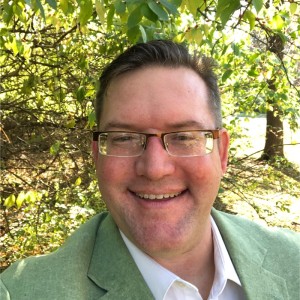
Thursday Oct 28, 2021
Cybersecurity Bonus Episode with Matthew Cloud
Thursday Oct 28, 2021
Thursday Oct 28, 2021
Here's our pre-conversation with Matthew Cloud prior to the full interview. In this segment we talk a little bit about the Ubuntu distro, the ubuntu philosophy of computer science, and 4th and 5th generation tools for generating working code to solve computer science problems in the context of Matthew's role connected to a grant for cybersecurity education through Ivy Tech and other schools in several states.
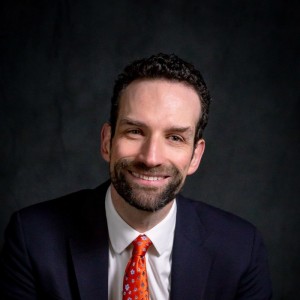
Monday Aug 23, 2021
Ep 131 - Jordan Wales and the Moral Theology of AI
Monday Aug 23, 2021
Monday Aug 23, 2021
- Jordan Wales, PhD, who teaches theology at Hillsdale College in Michigan, spoke with Paul and Bill about his research at the intersection of robotics and religion.
- He discussed a compelling concern in the future relationship between human beings and technology. In particular, the concern, about which he spoke at the 2021 conference of the Society of Catholic Scientists, dealt with the interaction between individuals and the entities Wales calls “apparently personal artificial intelligence” (APAI).
- APAI products are already becoming commonplace in the world of commerce, as this BBC article discusses. People will be increasingly able to purchase, and interact with, virtual friends or babysitters or therapists, for example, Dr. Wales pointed out.
- This raises moral questions related to personhood, covering both the APAI product and the user of that product. The product will not have an inner life representative of what we think of as a person, although the definition of person has an interesting history influenced by scholars such as Saint Augustine. Human beings can express and influence their own understandings of personhood through their interactions with APAI. These understandings may lead to various types of interaction, ranging from pride and manipulation to excessive empathy, and one middle ground would consist of appreciation for the humanity that underlies the production and information/formation of the APAI product, Dr. Wales pointed out.
- As the use of APAI grows, there are also concerns about how the aggregated human “input” into the experience of APAI personalities may cause a flattening-out of human perspectives on the unique qualities of each person. One current example of the trajectory for these concerns comes from the use of the auto-correct feature by Google for writing. Long-term possibilities include such features of interactions not only affecting our choices of words and expressions, but also influencing what subjects we think about and how we think about them. This highlights the moral principle that ultimately we must retain our unique personal identities and wisely discern how to exercise our responsibility and restraint in allowing some possible applications of APAI to influence us, Dr. Wales said.
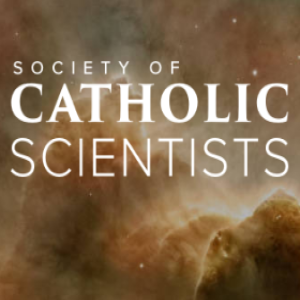
Tuesday Jun 08, 2021
Episode 127 - SCS Meeting 2021
Tuesday Jun 08, 2021
Tuesday Jun 08, 2021
Paul and Bill provide an on the scene review of the Society of Catholic Scientists Conference 2021 at the Washington, D.C. Hilton. The themes were Extraterrestrial Life, Artificial Intelligence, and Minds beyond the Human.
As an added service, here are some links provided by the after dinner speaker, Jennifer Wiseman, to works and groups dedicated to faith - science dialogue:
Book: "The Book of the Cosmos: Imagining the Universe from Heraclitus to
Hawking" (Editor Prof. Dennis Danielson, UBC; Perseus, 2000)
Book: "The Language of God", by Francis Collins (Director of the U.S. Human Genome
Project; Free Press, 2006)
Organizations and Websites:
Society of Catholic Scientists! catholicscientists.org
Dialogue on Science, ethics, and Religion (DOSER), American Association for the
Advancement of Science: aaas.org/doser
sciencereligiondialogue.org
Sinai and Synapses: sinaiandsynapses.org
American Scientific Amilation (ASA) asa3.org
(network of scientists, engineers, teachers, and science enthusiasts Interested in
the relationship of science and Christian faith)
Biologos.org
Science for the Church: scienceforthechurch.org
Scientists in Congregations: scientistsincongregations.org
Faraday Institute for Science and Religion: www.faraday.cam.ac.uk
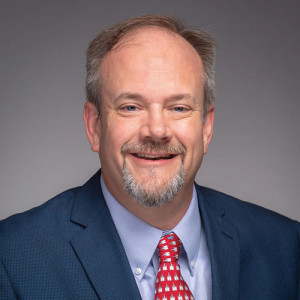
Tuesday May 11, 2021
Episode 125 - Chris Baglow and Jay Martin (rerun, full episode)
Tuesday May 11, 2021
Tuesday May 11, 2021
- Paul and Bill are proud to present this encore episode featuring the Science and Religion Initiative featuring the Science & Religion Initiative program conducted by the McGrath Institute for Church Life at the University of Notre Dame. In 2019, we interviewed Chris Baglow, Ph.D., director of the program, which equips Catholic high school educators with big-picture insights and detailed tools to communicate effectively regarding the complementarity of faith and reason, science and religion.
- We spoke with Prof. Baglow about topics covered in his recently published book, the second edition of Faith, Science, & Reason. He will be keynote speaker at the 2021 conference of the Society of Catholic Scientists, scheduled for June 4–6 in Washington, DC. Find information about the conference
- We also spoke with Jay Martin, Ph.D., a scholar in systematic theology who was the Science & Religion Initiative’s assistant director and is now Assistant Teaching Professor in Notre Dame’s Department of Theology.
- The initiative, with support from the Templeton Foundation, encourages a coordinated approach to educating young Catholics, helping them to avoid the trap of a focus on science as an exclusive source of truth and “real” knowledge. Such a focus can drive students away from the Catholic Church’s wisdom and values if it dismisses religious faith as meaningless—not worth serious engagement in their minds and hearts.
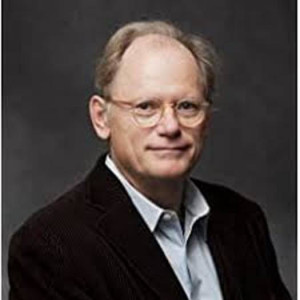
Monday Apr 12, 2021
Monday Apr 12, 2021
Bill and I are excited to bring you an episode about the archeology and secular history of the time when Jesus was born, grew up, and preached. Fuller notes to come on our episode with Dr. Jean-Pierre Isbouts, author of In the Footsteps of Jesus.
- Jean-Pierre Isbouts, Ph.D., is a best-selling author, historian, and filmmaker who has invested decades of work in to understand and explain the Biblical foundations of Christian faith from an interdisciplinary perspective. His career as a humanities scholar began with his doctoral degree from the University of Leiden in the Netherlands. He is a professor of human development at Fielding Graduate University in Santa Barbara, CA.
- Isbouts’s latest book, published in 2017 by National Geographic, is In the Footsteps of Jesus: A Chronicle of His Life and the Origins of Christianity. In addition to reading his books, you can take his course, “The History and Archaeology of the Bible” through the Great Courses library of products. He has made several notable films, and he recently has posted a series of videos embodying his new book, available by searching his name on Vimeo.
- Isbouts talked with Paul and Bill about key findings that help to increase public understanding of the historical context of Jesus’ life and how he loves to deepen that understanding through visual images of lands where Jesus taught, plus explorations in maps, art, archaeology, and more. His book features a beautiful collection of images.
- The discussion with TSSM looks into Jesus’ background, which is much more extensive than the typical label of “carpenter.” He notes that Jesus’ role in rebuilding the city of Sepphoris presaged his message of action and solidarity aimed to build the Kingdom of God. The times during which he taught on earth were filled with social and economic chaos, when the rule of Herod and his son decimated the economy of Galilee and displaced thousands of peasants in severe poverty.
- These historic times, Dr. Isbouts points out, resonate with readers today during a period of pandemic and polarization. We need to hear again Jesus’ call to come together as citizens of the Kingdom to practice basic principles of the Torah—compassion, social justice, and total faith in God as Father. Dr. Isbouts himself says his studies have drawn him closer to the figure of Jesus and “what fired his ministry.” The application of various fields of scholarship helps to tear down walls that many people today see dividing the worlds of science and faith.
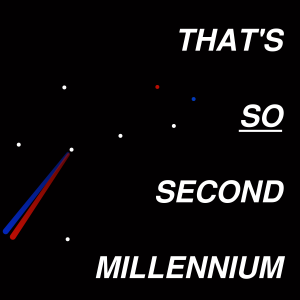
Monday Mar 22, 2021
Episode 122 - Original Sin and Mental Unhealth
Monday Mar 22, 2021
Monday Mar 22, 2021
Paul and Bill discuss some of the ways in which human minds go wrong. Paul wonders aloud whether the state of spiritual disconnection called "original sin" is specifically manifested in the ways parents relate, or don't relate, to children and the problems that follow from that for the rest of our lives. We discuss Henri Nouwen (a little) and Eckhart Tolle (a little more) and his ideas on how enlightenment has cropped up here and there throughout history but gets suffocated by social conformism.
- Paul and Bill discussed a number of resources for pondering the nature of sin and how it affects our lives—as well as how people act based on their perceptions of sin in themselves and others. Without the Church’s wisdom and reliance on Christ’s grace, behaviors based on a misunderstanding or dismissal of sinfulness can distort our lives as individuals, in our minds and hearts, as well as our lives in society.
- The co-hosts concluded that we need to invest time throughout our lives to discern how sin—and a need for forgiveness and grace which is poorly grasped in secular society—in integrated in our mental and spiritual health. We cannot just set aside the matter of original sin and our ongoing inclination toward evil. We tapped into the Catechism of the Catholic Church, especially the paragraphs around #400 and beyond, for guidance to sort this out.
- Such guidance is important in countless cases, such as reflection on Jesus’ teaching on separating the sheep and the goats in Matthew 25.
- We discussed The Blank Slate by Steven Pinker.
- Paul spoke of being pointed toward books by Henry Nouwen and commentary by Eckhart Tolle, a popular proponent of new-age syncretism with echoes of Christianity and Buddhism. He also spoke of exploring life-solutions propounded in EMDR therapy.
- He mentioned having found useful insights when exploring that therapy through Francine Shapiro’s Getting Past Your Past.

Wednesday Jan 27, 2021
Episode 118 - "I Know What You're Thinking"
Wednesday Jan 27, 2021
Wednesday Jan 27, 2021
- Paul and Bill talk here about a mix of psychology and societal dilemmas in light of Catholic values.
- Twelve-step programs have experience with an interpersonal phenomenon often called “taking someone else’s inventory,” Paul points out. This entails one individual assessing another through a facile psychological analysis of supposed characteristics underlying comments made or behavior shown; it can be prone toward unfortunate intimations of contempt, based on emotional reaction. This has gotten worse in these days of snap judgments which assume the worst, not the best, about complex people in complex situations.
- Often, people fail to make a distinction between the actions and the basic characteristics of a person. Paul mentions The Betrothed, a novel which talks about circumstances where different sorts of reactions to evil actions were possible, for good or ill.
- The film Rudy includes a conversation where one hears the aphorism, “I’ve learned there is a God, and I’m not Him,” Bill mentions. The twelve-step programs have recognized that it is an awful prospect to have to play the role of God without having the abilities of that Higher Power, as Paul points out.
- Subsidiarity as a centerpiece of Catholic Social Thought makes sense not only as an aid to effectiveness of solutions, but also an aid to greater peace of mind about one’s agency and responsibility in addressing problems, your co-hosts agreed.

Monday Dec 28, 2020
Episode 116 - Paying Attention or Paying a Price
Monday Dec 28, 2020
Monday Dec 28, 2020
In this last episode of 2020, Bill and I discuss how attention, focus, and distraction are shaping us and being engineered in our media-saturated culture. We can't pay attention to everything, and in this environment, it seems that censorship is becoming a politically acceptable option for tech companies, as the Trump election corruption allegations became forbidden topics on many platforms.
- Co-hosts Paul and Bill agreed that the film—and Broadway play—called “Network” shows foresight in its reflections about human dignity and corporate values in competition on an individual and global scale.
- Pope Damasus changed the dominant language of the (Roman) Catholic Church from Greek to Latin (what would have been called the vernacular language in that time and place).
- John Stuart Mill wrote On Liberty and helped to advance the authentically liberal project of freeing up human creativity and truth-seeking in the marketplace of ideas.
- Many U.S. citizens (and people in general) are reverting to tendencies toward self-centeredness in human communication and civil society—tendencies against which common-good principles of the United States have served as societal guard-rails with remarkable success during much of our history.
- The self-centeredness runs counter, too, to the zeal for connection-making which drives many messages from Pope Francis. By the way, that drive is a factor leading to the long length of the Pope’s encyclical, like his most recent document, Fratelli Tutti.
- Communication (and communities like those in social media) tend toward exclusion of unwanted information, rather than a greater spirit of inclusion.
- The Distracted Mind, recommended by Paul, is an academic book that is timely reading in what Bill calls this media world of “information inflation.” That inflation leads toward a purposeful or kneejerk limitation on attention—one cannot consume everything from today’s firehose of data!—and even what Paul described as weaponization of attentiveness.
- To the degree that a sense of exceptionalism guides us, history may justify some adoption of that in our thinking about the principles and aspirations of the United States. But it can be risky if it shuts off our thinking about, or respect for, the uniqueness and dignity that individuals around the world bring to the idea marketplace. We can’t reduce our thinking to dismissive judgments against them as merely packages of entirely good or bad ideas.
- Pope Francis writes for a present moment that needs a strong sense of right and wrong but also a realistic, holistic, transparent vision of the earthbound state of human thinking around the world. Paul notes that this can lead toward a sense of hopelessness, but both Paul and Bill say the papal messages—and the faith behind them—can offer a hope based on reliance on God’s operation in daily life. The messages include his annual teachings for World Communications Day.
- That’s a better approach than a video-game philosophy favoring destruction—and deconstruction—before a rebuilding in line with modern principles and atomistic priorities, as Paul points out. The better approach allows for fuller embrace of complex, reflective thinking, of “adulting” with a sense of moderation and responsibility to individuals and the common good, to the past as well as the future. Bill points out that the U.S. Constitution is one earthly source of insight from the past There are other such sources, too, Paul notes. GK Chesterton spoke of a population’s respect for the wisdom of its predecessors as a “democracy of the dead.”

Monday Nov 23, 2020
Episode 114 - Aida Ramos and A Church Where Economics Counts—For People
Monday Nov 23, 2020
Monday Nov 23, 2020
-
Paul and Bill spoke with Aida Ramos, Ph.D., an associate professor of economics at the University of Dallas. Prof. Ramos’ research and teaching at that private Catholic university include topics in economic development and Catholic Social Thought and their implications for public policy. She is the author of a book (Shifting Capital: Mercantilism and the Economics of the Act of Union of 1707 ) in the “Palgrave Studies in the History of Economic Thought” series.
-
The Vatican’s first direct foray into issues of justice in economics and the relationship of capital and labor came from Pope Leo XIII in 1891 in his encyclical Rerum Novarum. Pope Pius XI added to the Church’s economic analysis 40 years later in the encyclical Quadragesima Anno; it focuses on the different systems of economic organization. The Vatican has spoken out about economic organization and justice in various additional ways over the years, including such encyclicals as Saint Pope John Paul II’s Centesimus Annus. In general, both capitalism and socialism have received mixed reviews in terms of their virtues and problems.
-
At the core of economic decision-making—discernment about the systems from which we choose and how we implement them—is the balancing of rights and responsibilities. The Church strongly proclaims a variety of economic rights held by human persons. It also insists that humans and corporations go beyond a limited notion of responsibility focused only on maximization of income and wealth. The Church asks, what is the economy for? What is my duty to God and other human beings as it is to be exercised through human economic behavior?
-
The universal destination of goods is a Catholic principle that the reason the economy exists is for the good of all human persons. The preferential option for the poor is a principle which states: If any action makes the poor worse off, do not pursue it. The Church also teaches that we all have a responsibility to uphold the common good. The Catechism of the Catholic Church says, the totality of social and economic conditions is intended for human beings to achieve fulfillment and authentic happiness.
-
Pope Franics’ new encyclical, Fratelli Tutti, reminds the faithful to pursue fraternal relationships of compassion and love with people all over the world, which helps the human ecology to reflect and build the common good. This taps into principles of Catholic Social Teaching including solidarity and respect for the dignity of each unique individual created by God. This global consciousness coexists with a local consciousness guided by the principle of subsidiarity—which instructs that people at the level of smaller communities should have responsibility and authority to address all issues they can address, free of intervention by higher authorities unless those greater resources must be called upon.
-
Catholic Social Thought, or Catholic Social Teaching, has been called the Church’s best-kept secret, partly because its principles are prospective meeting grounds for broader public consensus; they are drawn from the Gospel and Church wisdom through the ages, but they have rarely been proclaimed as a package to be consistently understood, discussed and applied in unison.

Monday Nov 09, 2020
Episode 113 - US Election 2020
Monday Nov 09, 2020
Monday Nov 09, 2020
Your TSSM coverage of the 2020 US election with the unique perspective Bill and Paul provide. Be sure to let us know your ideas for the presidential hopeful cage match reality show that we clearly need to augment or replace the primary election system here in the 21st century... hit us up with your proposed names and formats using the links to the right. As always, God bless America (all of it, not just the US...).

